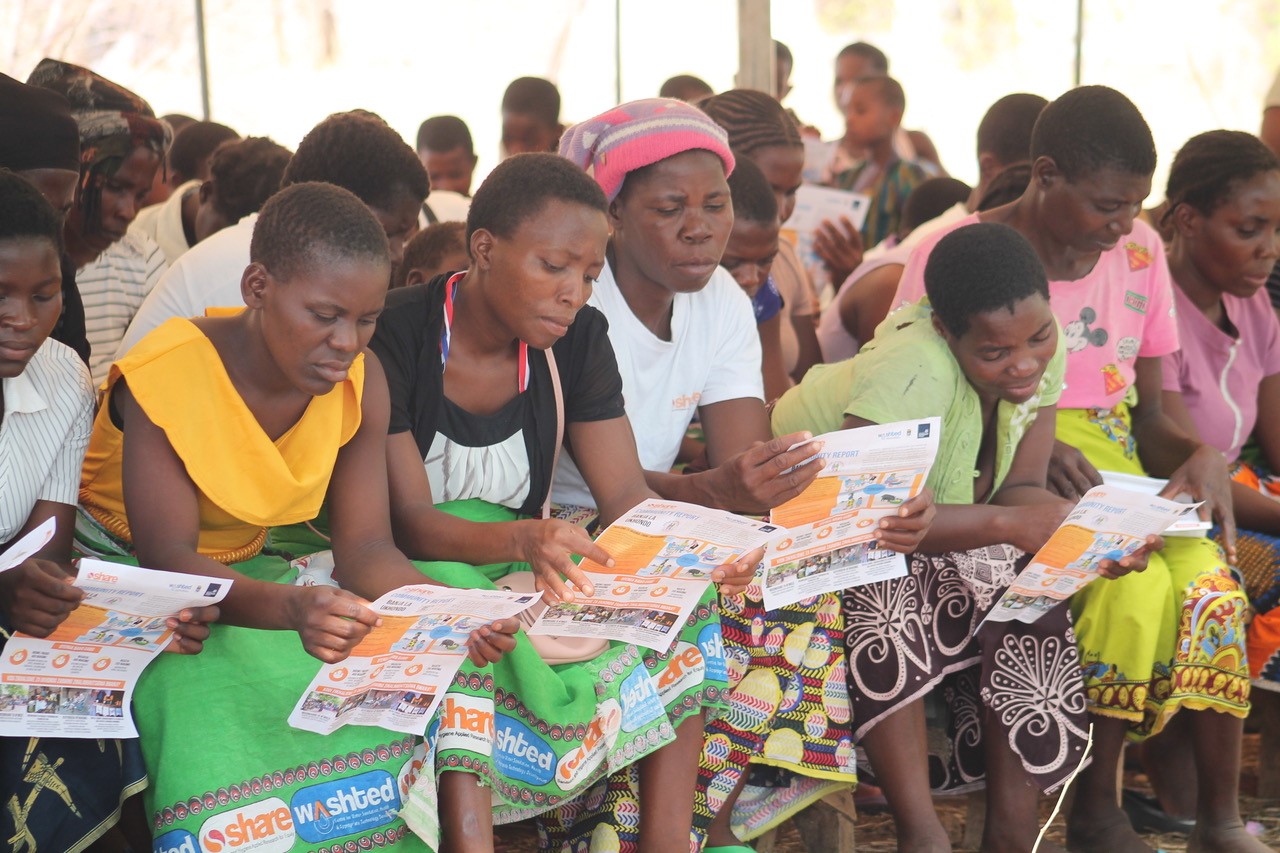Dispelling belief in witchcraft: The unexpected consequences of disseminating research findings in Malawi
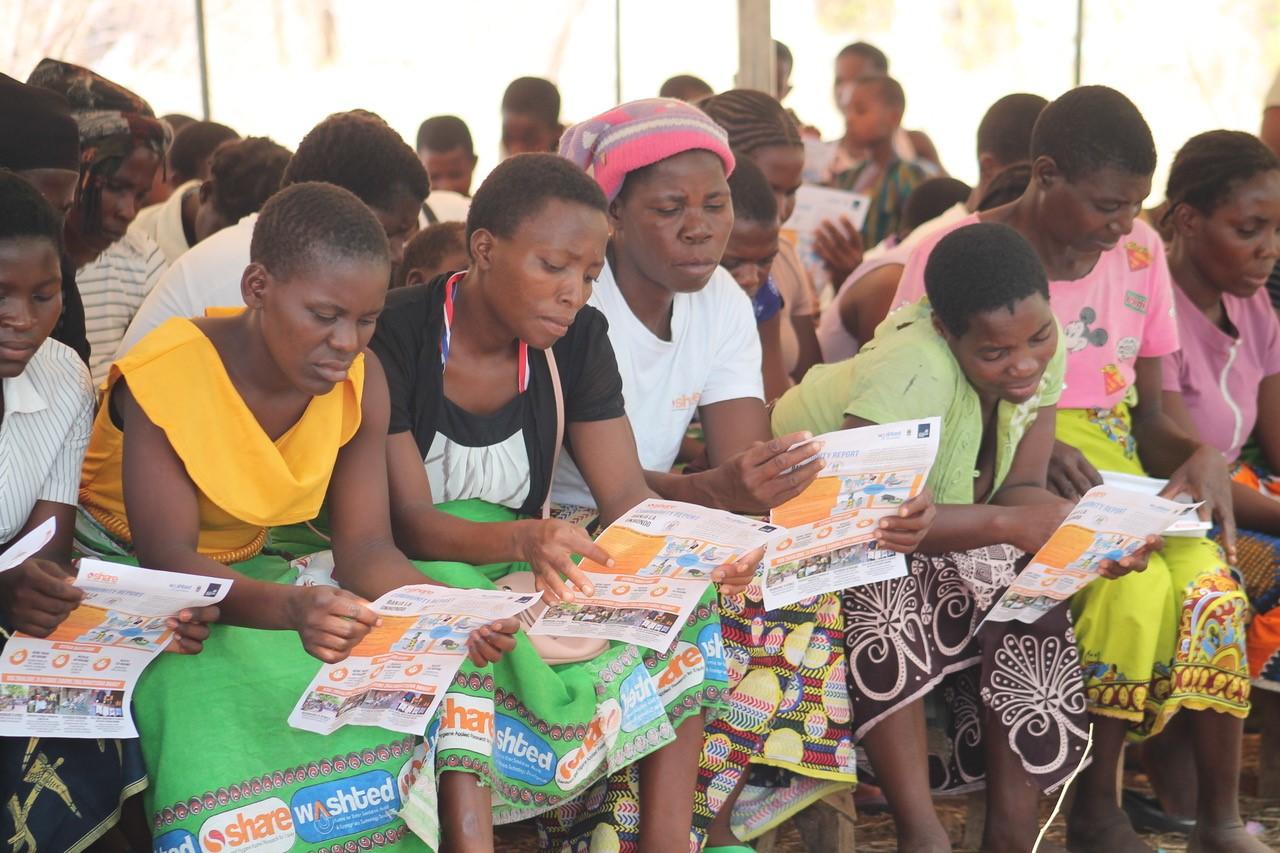
In this blog our SHARE partners at WASHTED in Malawi (Rossanie Daudi, Tracy Morse and Kondwani Chidziwisano) reflect on their experiences of disseminating their research findings locally.
As Malawi based SHARE partners – the WASHTED Centre and University of Strathclyde - we feel it is crucial to share the results of our research with the Hygienic Family research participants. The Hygienic Family study was conducted in rural Malawi. This behaviour-centred, context-appropriate intervention integrated improved food hygiene and WASH practices to determine their relative impact on diarrhoeal disease in under-fives in rural Malawi.
Households spent many months answering our questions, allowing their households to be observed and participating in the many intervention activities, and so deserve to know the outcomes of all their efforts. With that in mind, from the 18th to 28thNovember 2019, the SHARE team at the WASHTED Centre spent several days reconnecting with participating households from the Hygienic Family Intervention trial in Chikwawa District (Malawi) through community events and the District Executive Committee [DEC]. DEC is a technical body that provides advice to the Council and its service committees. It is composed of all Heads of Departments and NGO/Development partners in the district. We also supported caregivers to meet with the Minister of Health; where they shared their experiences and discussed the results from their perspective.
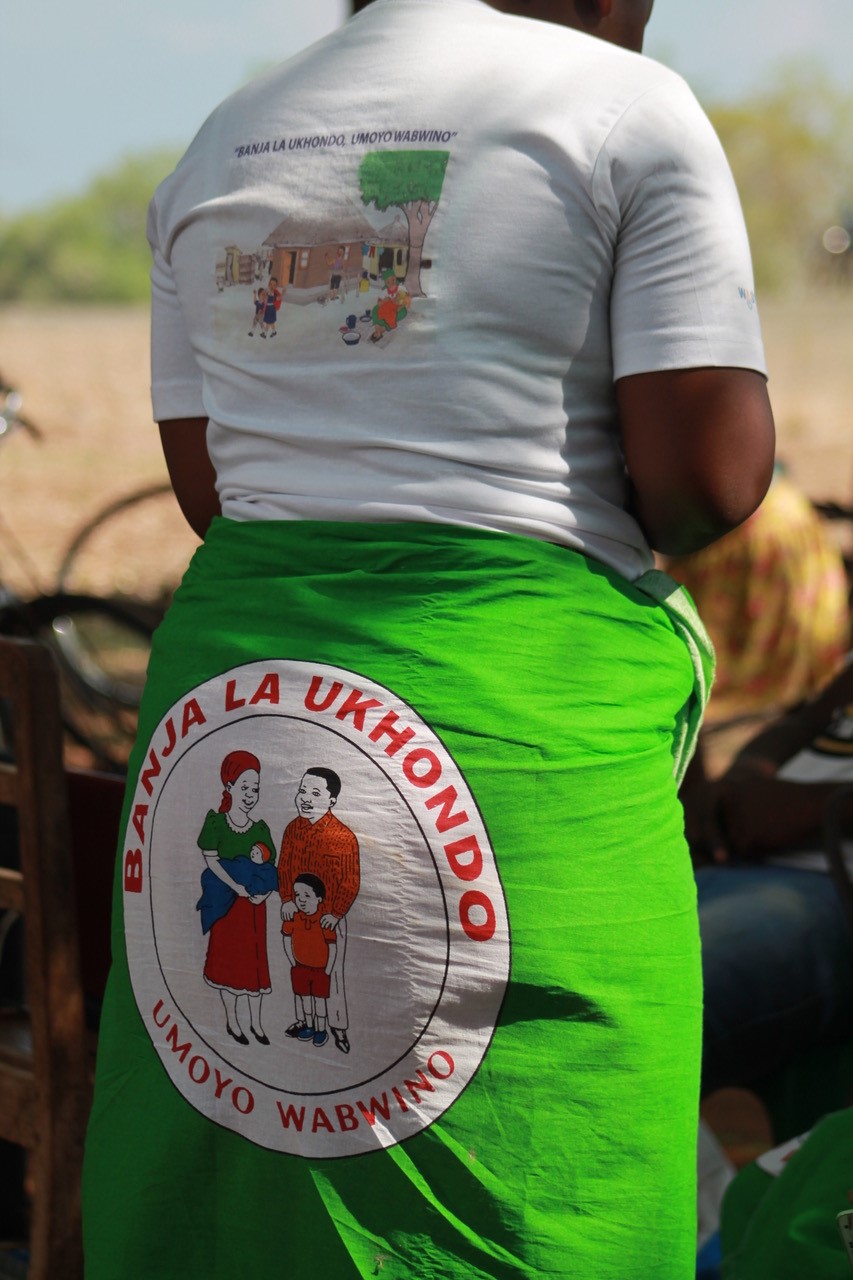
Disseminating results to the participating communities
Community open days brought together caregivers (n=896), the community key informants who delivered the intervention and community leadership and government health workers (n=238) to receive feedback from the SHARE Malawi team and ask questions. We held eight community events; six with the participants who received one of the intervention arms and two with participants who were in the control arm. Using a combination of dances, songs, and explanations of the community report leaflet, we aimed to ensure study participants could see the long-term benefits of the behaviours they had adopted.
Opportunities for questions and feedback gave time to caregivers, chiefs, community key informants and health surveillance assistants to express their thoughts on the research outcomes and the dissemination events themselves. Caregivers asked various questions after the sharing of the results, which the team addressed.
“We are very happy with the outcomes that you have shared. We didn’t expect that you would come back. We will keep on working hard as the results have shown that these things were working” – Female Caregiver, Intervention area.
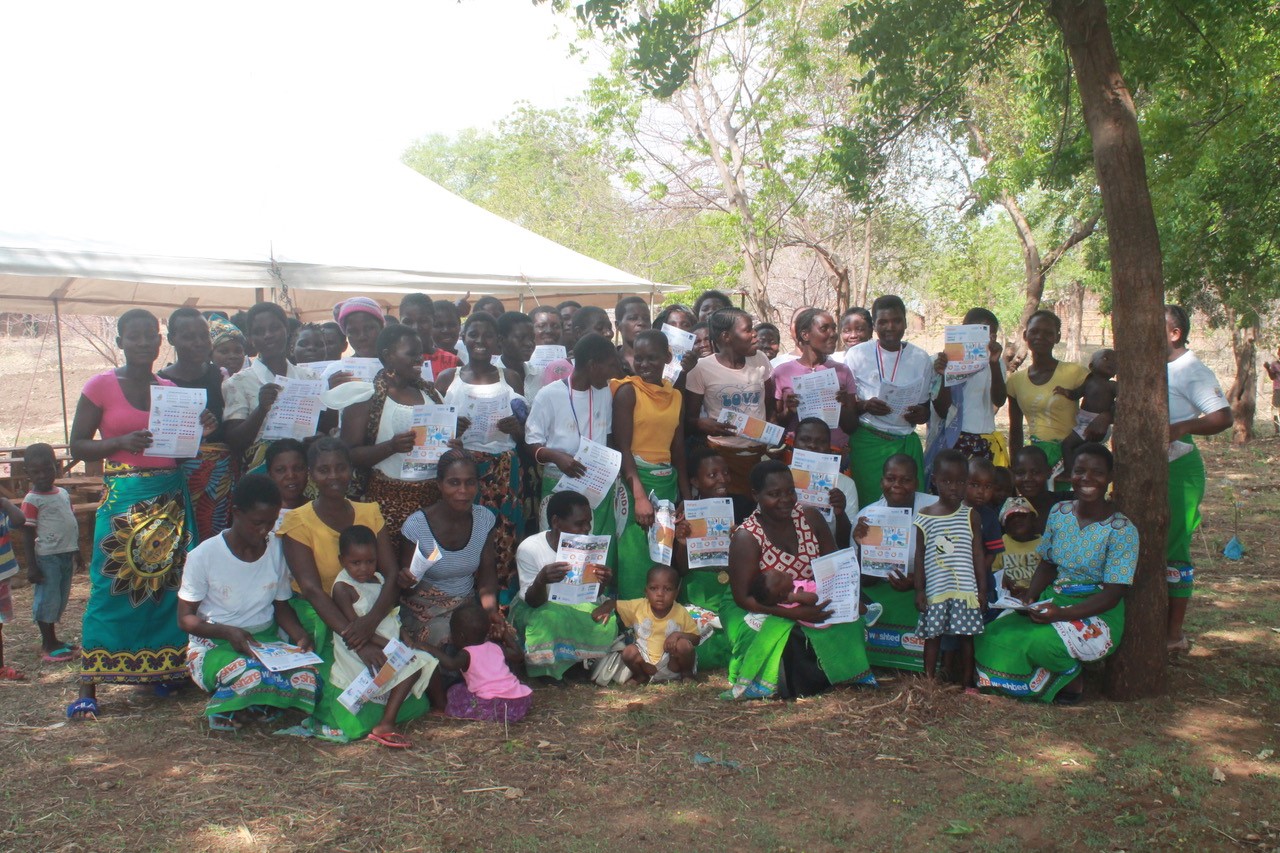
Knowing that the intervention has reduced diarrhoeal diseases has encouraged caregivers in the intervention arms to sustain the hygienic behaviours that they are practicing as well as triggering caregivers in the control arm to long for change.
For the community key informants who helped deliver the intervention to caregivers, learning the study outcomes gave them a sense of pride as they could now see the evidence that their hard work and involvement had brought change.
“We are thankful for sharing with us the research outcomes. Let me tell you here in Ngabu there is lots of research that has been done, but other groups have never brought outcomes to share like you have done. We are happy with the percentages; it means that we were working hard. And we promise that we will keep on empowering caregivers to continue practicing good behaviours” – Community key informant.
Many people in the communities we worked in believed that diarrhoea in young children is the result of witchcraft. We were able to help dispel this belief through discussing the difference in diarrhoea prevalence between the intervention and control arms and the poor hygiene practices that are linked to higher diarrhoea prevalence.
“The project is important to me because a family which usually faces illness is always disturbed. Even in the community diarrhoea was giving disturbances. When people who have just got married, have one child and maybe the child has diarrhoea and dies; people start suspecting each other of witchcraft. Thanks for the light that you have brought through these results. To you caregivers who were involved you are the light for this community. Please keep on and encourage others we should not backslide and we should not wait for volunteers to visit us” – Traditional Authority Ngowe.
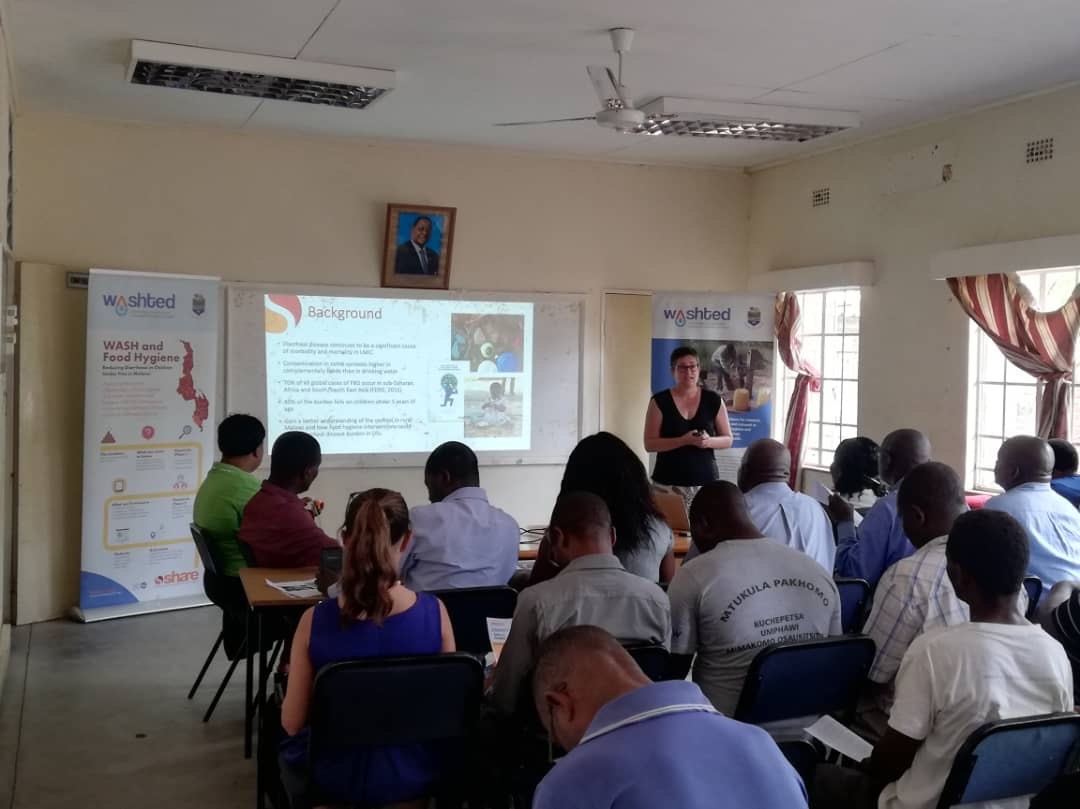
The Chikwawa District Environmental Health Officer, Mrs. Veronica Nkukumira, also gave a similar feedback showing that this misconception really exists.
“On behalf of all [health] workers let me say I am glad and I would like to thank WASHTED Centre for bringing these results. This is rare - most people come and do research but they don’t give results. But they [WASHTED] first complete research activities and now they have brought results. So, let’s keep on practicing the behaviours which they were encouraging so that we can stop calling each other witches. As you are well aware Chikwawa was well known with cholera but not anymore. So, let’s keep on and be role models to others. I am hoping in future they will come and get some people to go and empower others in another community” - Chikwawa District Environmental Health Officer
Communicating results more widely in the District
Using the platform of the Open Defaecation Free celebrations within Chikwawa District, the SHARE team also had the opportunity to meet the Minister of Health and other high-level officials to describe the research undertaken and the positive results found. This was a perfect opportunity to begin discussions on how The Hygienic Family intervention could be scaled up through the existing structures at community level in Malawi. This would be particularly important to support improved and sustained hygiene and sanitation behaviours after the first stage of open defaecation free status has been achieved. The Minister of Health, Director of Preventive Health Services, and Deputy Director of Environmental Health were excited with the results and we look forward to engaging with them more in 2020.
“As one of the thematic areas of the National Sanitation and Hygiene Strategy (2018-2024) is behaviour change and communication, I would like to see the learnings from this study shared with partners, particularly at the official launch of the strategy in 2020.” – Allone Ganizani, Deputy Director Environmental Health, Ministry of Health.
Lastly, the District dissemination events were wrapped up with presentations to the Chikwawa District Executive Committee which was well attended by committee members (n=71) as well as people from other organisations operating in the District.
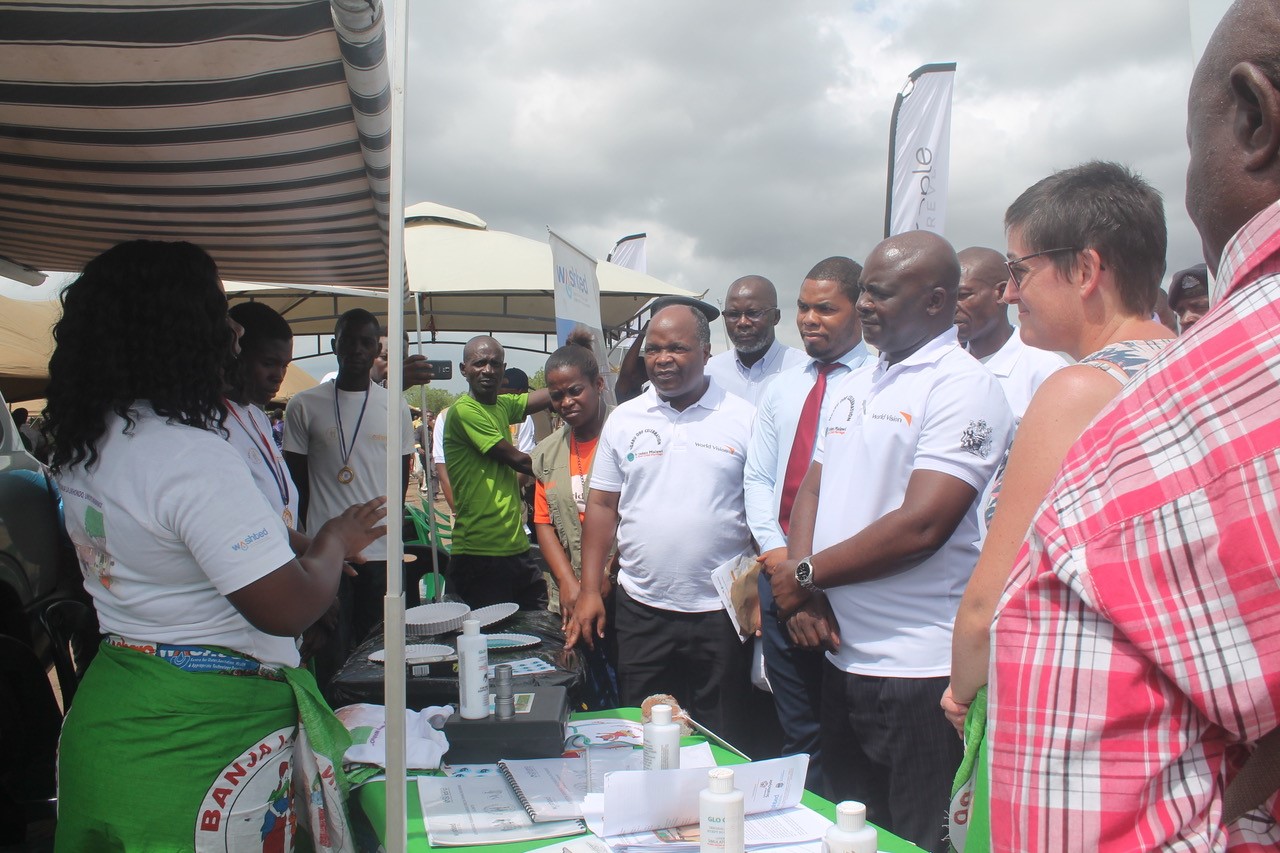
Communicating results to other partners and future plans
Led by WASHTED Centre SHARE team members, 17 officers from WaterAid Malawi and their implementing partners had a learning visit in one of the villages in the treatment arm to get first hand information from study participants on 28thNovember 2019. SHARE Research Fellow, Kondwani Chidziwisano, will now participate in their creative workshops for their new hygiene projects in Malawi. He will be sharing The Hygienic Family model with the team, and we look forward to working with them in 2020.
The WASHTED Centre SHARE team has also agreed with Chikwawa District Health Office to train Environmental Health Officers on The Hygienic Family toolkit. This will allow them to become trainers and subsequently train Health Surveillance Assistants to allow scaling up of the Hygienic Family approach in the District.
In 2020 the team will be holding a national dissemination event, the details of which will be shared shortly.
